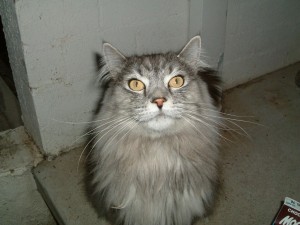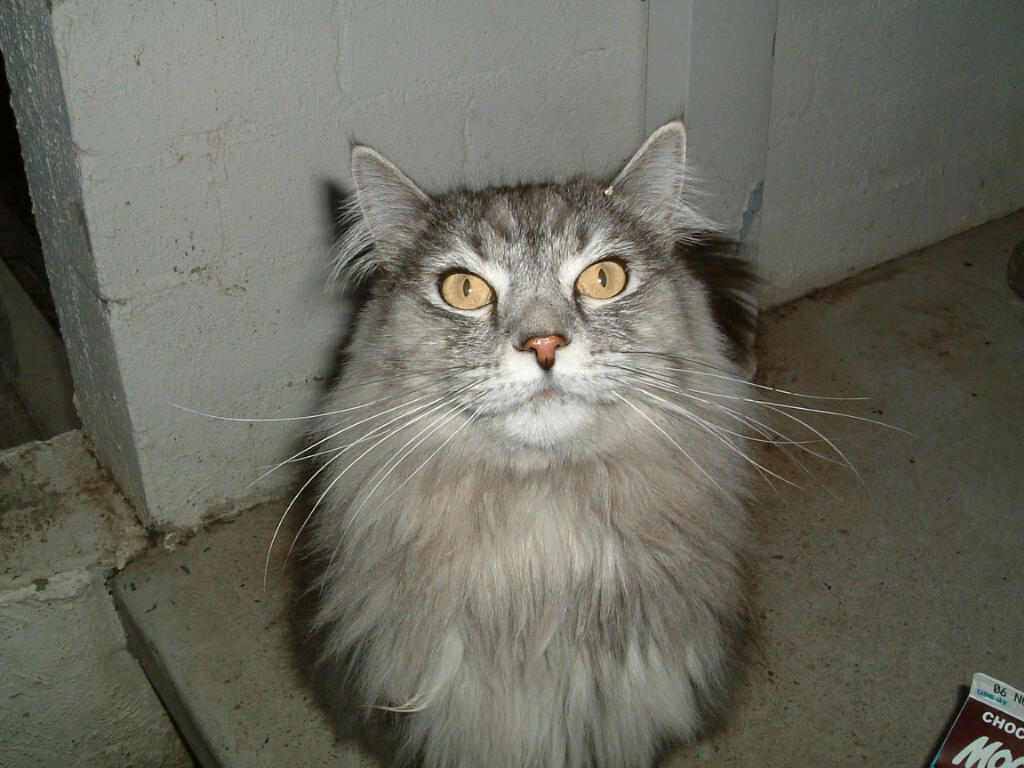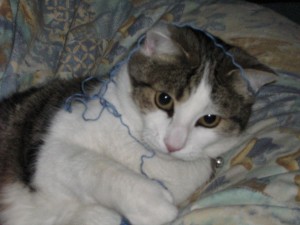 At first Gus’s carer thought he had hair balls. So did the friends she asked. He gagged and convulsed and brought up froth. She gave him some laxative paste.
At first Gus’s carer thought he had hair balls. So did the friends she asked. He gagged and convulsed and brought up froth. She gave him some laxative paste.
Everything in the litter tray seemed normal and for a while Gus seemed OK.
When she rushed off to work he was curled up on the lounge in the sun room as usual.
But the gagging started up again, especially at night. She noticed that he wasn’t eating all his dinner and sometimes he stopped in the middle of the gagging and breathed heavily.
One night he crept on to the end of the bed and wheezed and gasped for breath until she was sure he was choking to death.
Next morning she rushed him into us. We X-rayed his chest and found a very hazy lung and signs of chronic bronchitis.
We took samples from Gus’s lungs and found he had pneumonia. Gus had developed an airway and lung infection on top of the chronic bronchitis.
Cats get asthma and bronchitis, just like humans do. For some it is worse when there are lots of pollens blowing about, for others being cooped up inside with the stagnant air and dust mites in winter set the wheezing and coughing off.
His carer remembered that he had always had a bit of a wheeze, especially in spring and early summer. She hadn’t thought much of it.
It is very easy to confuse coughing with vomiting or regurgitation. Usually food or bile will come up at some stage with vomiting. Vomiting cats often lose their appetite or have diarrhoea as well. Coughing cats don’t go off their food unless they develop an infection as well.
Some asthmatic cats have life threatening breathing difficulties if they are not treated adequately. If you notice your cat coughing, gagging, breathing with difficulty, especially with the mouth open and the neck extended, contact your vet.
Check out Fritz the Brave for reliable information and support if your cat has asthma or bronchitis in cats.
Gus is back to his irascible self after a long course of antibiotics. He’s getting used to a puffer and spacer, and quite likes all the attention we give him.


